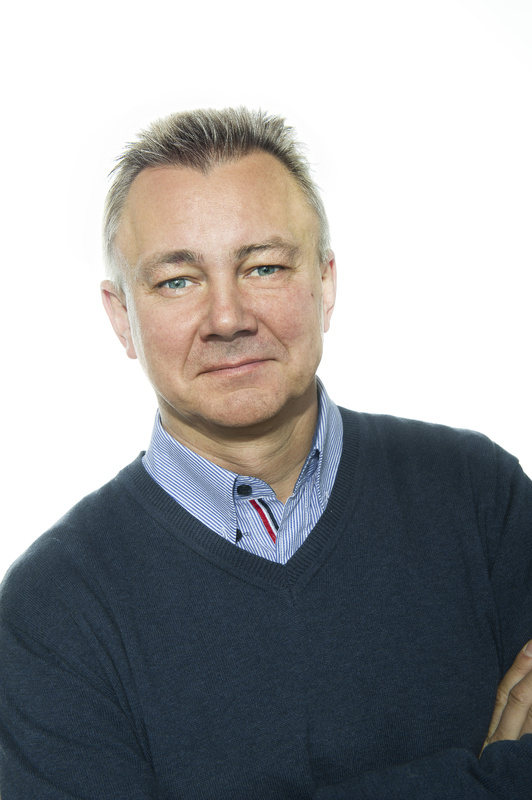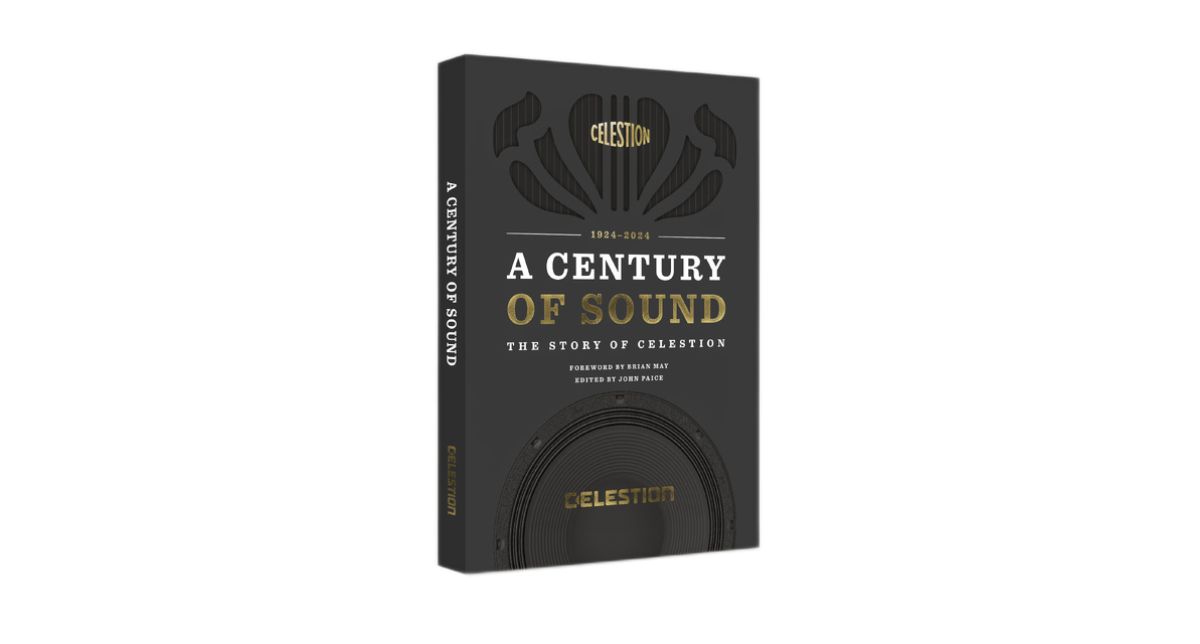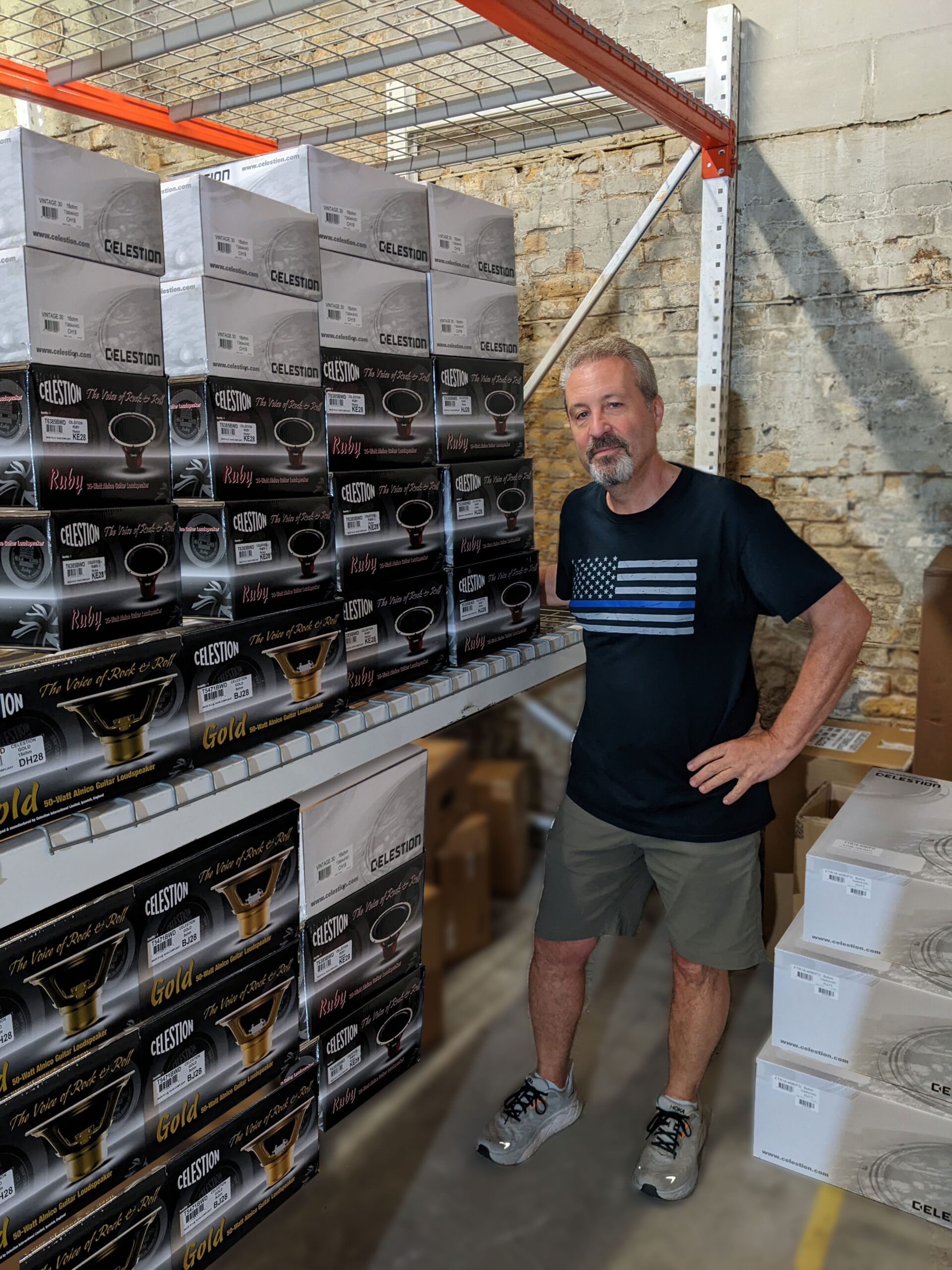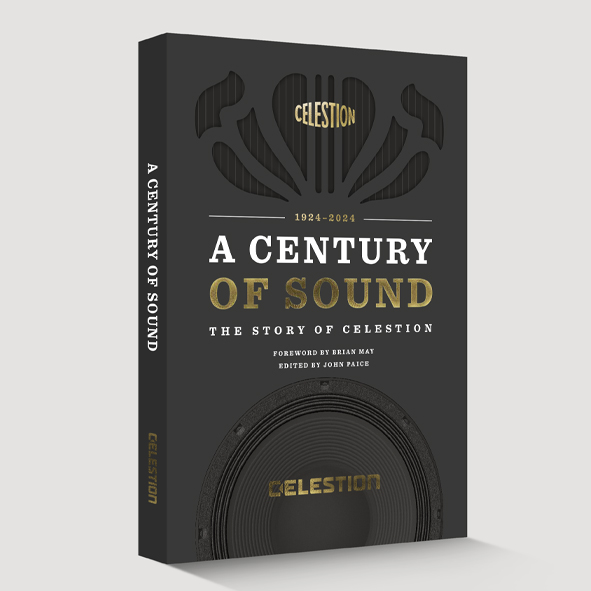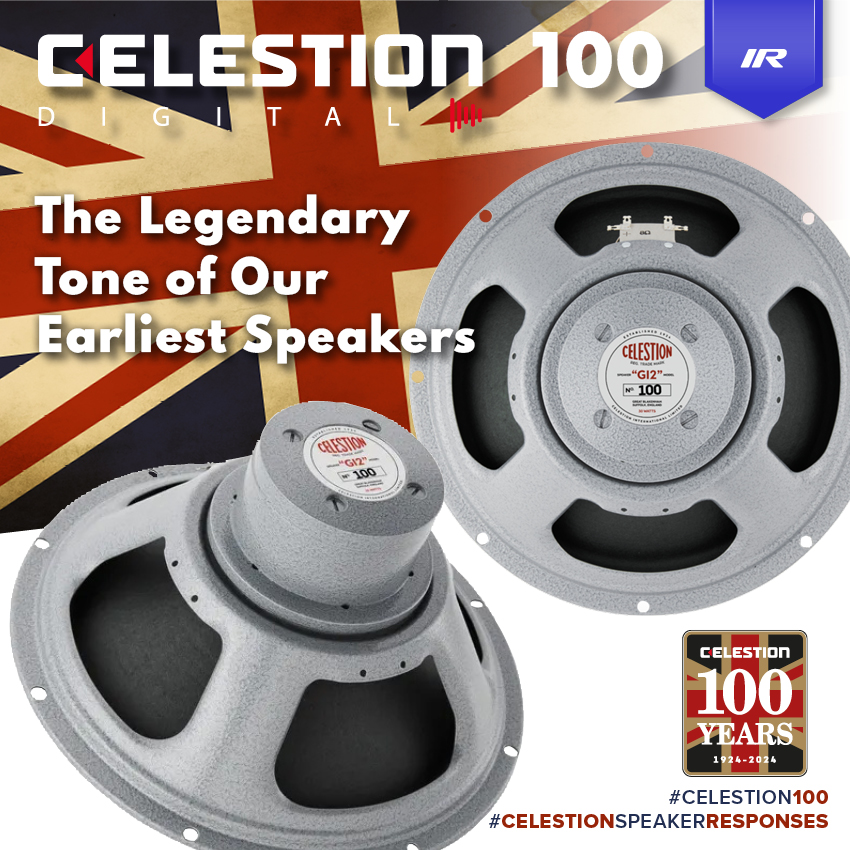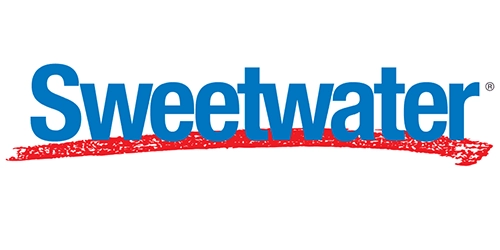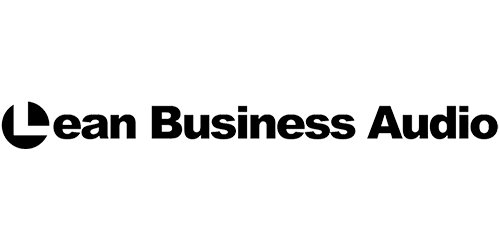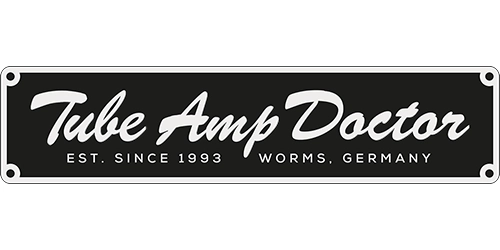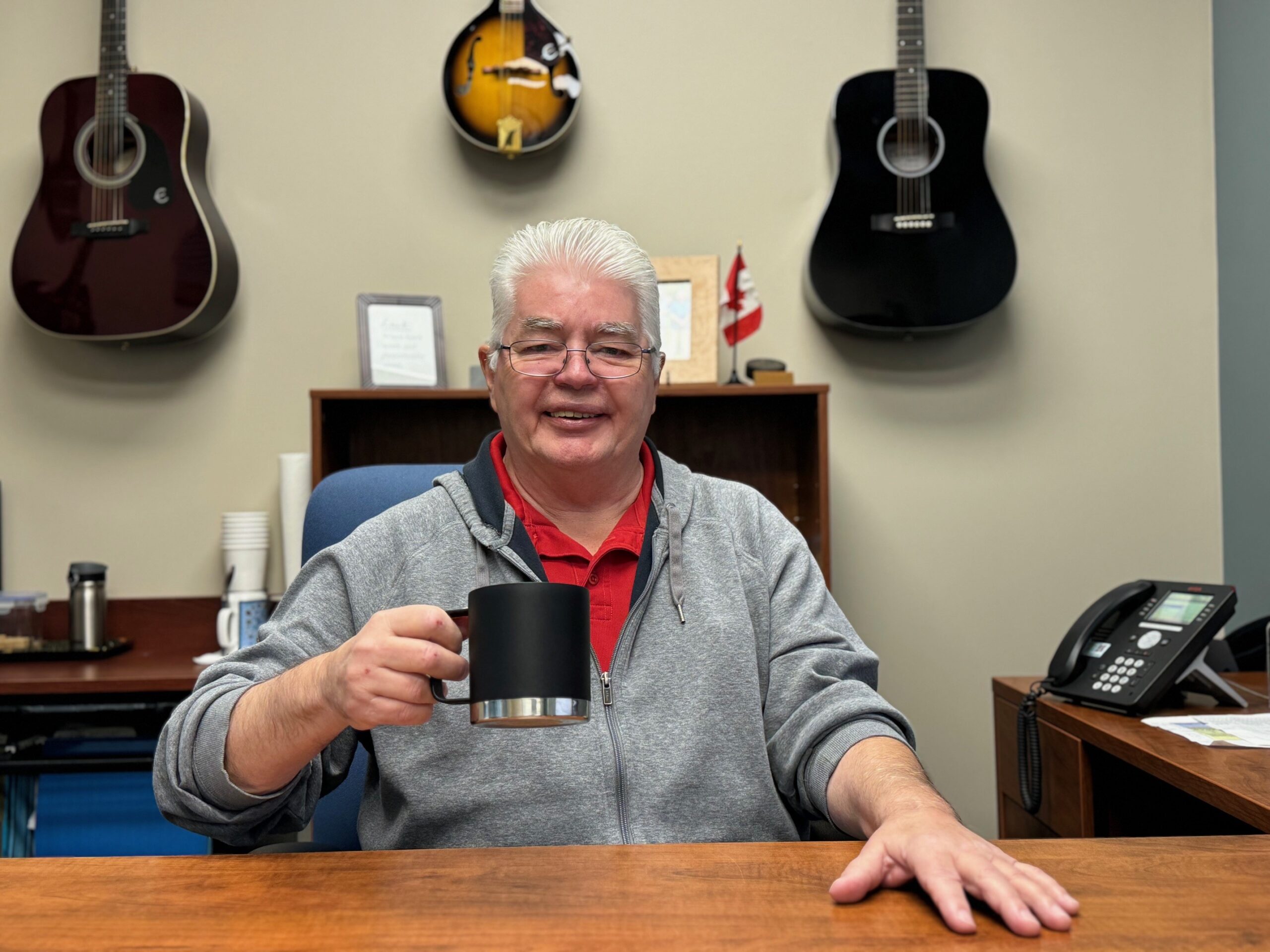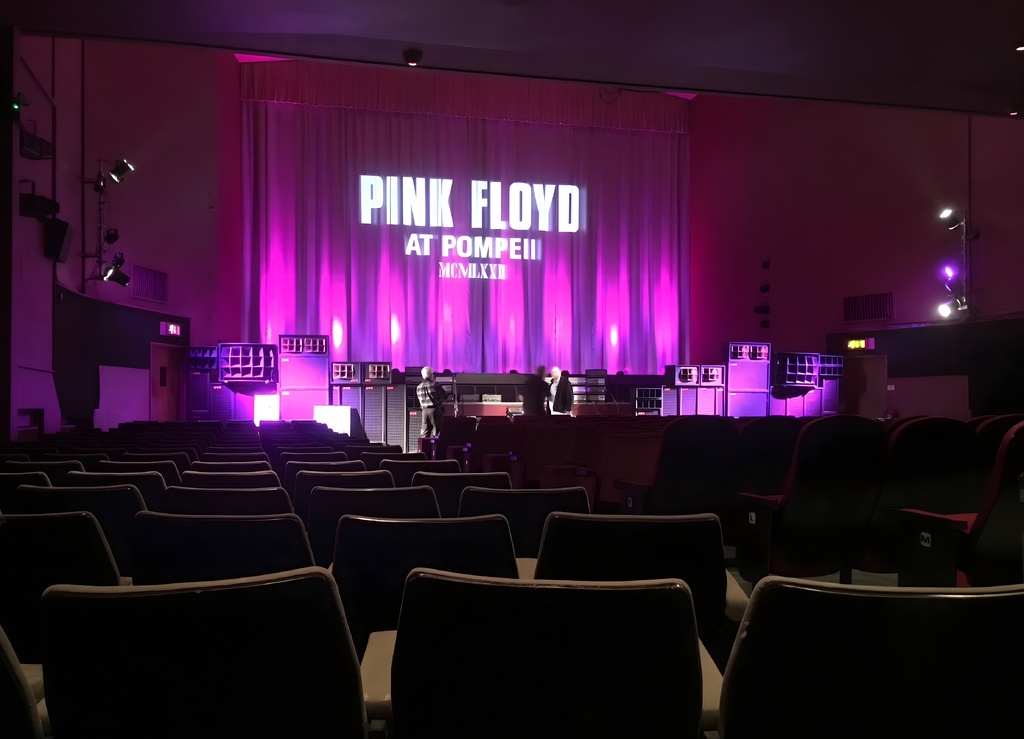
Ipswich, UK (May 28 2025) — Over half a century from its original filming, Pink Floyd’s iconic concert film, Live at Pompeii, has been digitally re-mastered in 4K with a new high-resolution, Dolby Atmos audio mix by Steven Wilson. Thanks to the meticulous restoration efforts of author and audio historian, Chris Hewitt of CH Vintage Audio, a once in a lifetime opportunity arose for attendees of the world premiere screening to experience the film’s soundtrack through Pink Floyd’s original analogue PA system used during their 1971 performance in the ancient Roman Amphitheatre. The WEM PA system, groundbreaking for its time, features period-authentic Celestion G12, G10, and MH1000 drivers.
Chris Hewitt’s journey into the world of audio began early. “I started listening to rock albums in grammar school,” he says. After leaving for college at 16, he started promoting bands through the student union. This led to work as a road manager and sound engineer, with his first festival gig coming before he turned 17, working with the Grateful Dead. Over his career, he supported a who’s-who of early punk acts including The Sex Pistols, The Damned, Motörhead, The Stranglers, and many others. Today, Hewitt owns CH Vintage Audio, housing “one of the largest collections of 1960s and 1970s sound equipment”.
Hewitt’s fascination with Pink Floyd’s started decades ago. He recalls first seeing them live around 1969 and being “blown away” by their innovative use of audio, particularly in their opening number “Alan’s Psychedelic Breakfast” which started the set with the sounds of frying eggs and bacon panning around the room. Inspired by a photo on the back of the Ummagumma album sleeve that showed the band’s gear laid out, it became a dream to one day own a large PA system like theirs.
The path to owning Pink Floyd’s actual Pompeii PA began incrementally. “I started off by buying six WEM Audio Masters that belonged to Pink Floyd,” Hewitt explains. From there, as people learned he was collecting Pink Floyd gear, offers started coming in. While some later PAs used by the band were “fairly standard technology for the time,” Hewitt notes that the Pompeii and Dark Side of the Moon PAs were “unique” and represented “groundbreaking live sound” for their era.
The Live at Pompeii PA system was created by WEM (Watkins Electric Music), a UK company considered a pioneer in large-scale concert sound reinforcement. A hallmark of the WEM sound, and this PA specifically, was their use of Celestion drivers in select models.
The system used at Pompeii featured a complex configuration on each side. This included 10 SL100 slave amps, WEM 4×12 and 2×12 PA columns loaded with Celestion and Goodman 12-inch speakers, and a WEM Festival stack. The Festival stack incorporated Celestion 15-inch bass units, Celestion 12-inch lower mids, and Celestion 10-inch cone speaker upper mid horns. Additional cabinets featured Celestion MH1000 horns and Vitavox 15 cell, multicell horns. The Celestion 12-inch and 10-inch cone speakers used were new G12 and G10 designs at the time, built with different cones and suspensions than their guitar amp counterparts, alongside the MH1000 midrange compression driver developed by Les Ward.
Hewitt highlights key technical and sonic characteristics that make the Pompeii PA stand out, especially compared to modern systems. “Technically, the special thing about the Pompeii system is that all the speakers are running full range,” he explains. Unlike modern setups which use electronic crossovers, “for the most part, in 1971, they hadn’t been invented yet.” The system operates with a stereo feed where “everything on the same channel gets the same signal.” The only thing resembling a crossover is “two 2.0 uf capacitors on the positive leg of the cable on the horn drivers. Everything else, the 15s, 12s, and 10s, even the amps, all get the same signal,” says Hewitt.
Beyond the technical design, Hewitt points to the sonic character imparted by the drivers. “The other thing I think that gave the Live at Pompeii PA and WEM speakers in general their characteristic sound, is the fact that they used English-made drivers.” He posits that speakers made in England sound different due to the damp manufacturing environment. “Celestion drivers in this PA were made in East Anglia, Ipswich,” he explains. This contrasts with American speakers of the era made in places like “sunny California,” resulting in a “damp cone when you manufacture the speaker,” that Hewitt says, “imparts tonal characteristics you can hear… a totally different sound.”
Restoring the 50-plus year-old system required significant work. “With the Pompeii PA, it’s all the actual speakers,” Hewitt notes. Some of the vintage Celestion G10s and G12s were blown, and Hewitt was able to re-cone them using drivers from his extensive, period-specific collection.
The world premiere screening with the restored PA took place at the Parkway Cinema in Barnsley. Hewitt recounts setting up the system, initially encountering a sceptical cinema audio engineer. This engineer spoke confidently about the cinema’s “state-of-the-art Dolby Atmos system, with fantastic sub-bass units, a digital desk, digital amplifiers, and racks of processors,” and initially only wanted to provide a stereo feed and suggested Hewitt not play the Pompeii system “too loud.” Hewitt listened and then politely asked ‘When I’ve plugged mine in will you at least hear how it sounds?'” Hewitt recalls. The result was immediate. “As soon as we turned the original Pompeii PA on, he changed his tune and declared ‘We won’t use the cinema sound system tonight other than the surround channels. Your analogue PA sounds so much better’.”
The screening was a resounding success, selling out the 200-seat cinema, and included three Pink Floyd fans who drove from the south of France just to have the experience. Both Sony Music and Pink Floyd’s Nick Mason have praised Hewitt’s efforts and its effect on the film’s promotion, but Hewitt noted that the response from the audience, largely comprising audio engineers and musicians, was what was exceptional. The general consensus was that it was that it “felt so authentic to hear Pink Floyd’s Pompeii performances through the actual gear they had originally performed with”. Hewitt adds what truly stands out for him, “Never in my life have I heard a PA get a standing ovation.”
Hewitt has further events planned for the Pompeii PA, including showcases at Nick Mason’s open house in Wiltshire on 7th-8th June, the Northwest Hi-Fi show in Cheshire on 20th-21st June, and PLASA, London Olympia 7th-9th September.
Looking ahead, Hewitt is busy restoring other legendary systems from his collection. “I’ve acquired David Bowie’s 1972-73 Ziggy Stardust PA and Led Zeppelin’s 1970 PA that they toured the world with,” he reveals. His ambitious plans include trying to get Robert Plant to perform through the Led Zeppelin PA and organising Bowie-themed events with the Ziggy Stardust system. Other restoration projects include recreating Sun Studio in England with authentic equipment used by Buddy Holly and Elvis Presley, and building an Abbey Road control room with gear used on Beatles recordings and mixes.
Chris Hewitt’s dedication to preserving and showcasing these pivotal pieces of audio history ensures that the groundbreaking sounds created by legendary artists and the audio companies that supported them, like Celestion, will continue to inspire and captivate new generations.
Read the full interview on the Celestion Speakerworld blog here.
About Celestion
With worldwide headquarters in Ipswich, England, Celestion design, develop and manufacture high-quality professional audio loudspeakers and compression drivers for sound reinforcement, as well as premium guitar and bass guitar loudspeakers. These world-renowned speakers are used onstage and in clubs, theatres and other venues the world over. With more than 100 years of success, the company continues to offer the latest technologies and innovations in the world of loudspeakers. celestion.com

